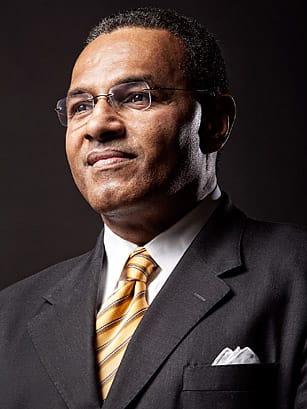Everything that’s happened with the impeachment process since October

Many things have happened with the impeachment inquiry since The Sabre did an overview in October. Get caught up on the impeachment process before winter break.
On Wednesday night, the House of Representatives voted in favor of impeaching President Trump on both articles. The vote was 230-197 for Article I and 229-198 for Article II. It was very partisan with all Republicans voting against impeachment and all Democrats except for three voting in favor of it. Now there will be a trial in the Senate to see if he will be removed from office. Here’s what led up to the vote:
The hearings went public on November 13 with American diplomat in Ukraine, William Taylor, and senior State Department official for Ukraine policy George Kent. Two days later, former U.S. Ambassador to Ukraine Marie Yovanovitch gave a public testimony to explain her sudden departure from her post. She said that president Trump “kneecapped” her efforts to improve diplomacy in Ukraine. Later, in a private meeting, David Holmes, a State Department employee at the embassy in Kyiv, said that he overheard U.S. Ambassador to the European Union Gordon Sondland tell Trump on the phone on July 26 that the Ukrainian President would do “anything you ask him to.”
Jennifer Williams, a foreign service aide who listened to the July 25 call between the White House and Ukraine testified on Nov. 19. In her opening statement, she said, “I found the July 25th phone call unusual, because in contrast to other presidential calls I had observed, it involved discussion of what appeared to be a domestic political matter.” Later that day, Kurt Volker, former special envoy to Ukraine, appeared as requested by Republicans on the Intelligence Committee, along with former National Security Council advisor Tim Morrison. Behind closed doors, Morrison had told the committee that he did not think any of the President’s actions were illegal. Volker and Morrison expressed concerns about the connection between aid to Ukraine and dirt on the Bidens. Volker said, “In retrospect, I should have seen that connection differently, and had I done so, I would have raised my own objections.” On Nov. 20, Gordon Sondland testified, admitting that there was a “quid pro quo.”
On Dec. 1, White House counsel Pat A. Cipollone told the House Judiciary Committee in a letter that President Trump would not appear in an impeachment hearing on Wednesday, Dec. 3. Cipollone wrote that Chairman Jerrold Nadler was not providing Trump “with any semblance of a fair process.”
On Dec. 5, Speaker Nancy Pelosi said that “the President has engaged in abuse of power undermining our national security and jeopardizing the integrity of our elections. His actions are in defiance of the vision of our founders and the oath of office that he takes to preserve, protect, and defend the Constitution of the United States.” She asked the House committee chairs to proceed with articles of impeachment.
On Dec. 10, House Democrats announced the two articles of impeachment against President Trump. He was accused of abusing the power of his office and obstructing Congress in their investigation of his conduct towards Ukraine. The articles were passed by the House Judiciary panel the following day. The vote in the House took place on Wednesday. Since articles passed in the Democrat-majority House, they will move on to the Senate for a trial. Because the Senate is majority Republican, many think that Senators will vote along party lines and it will not pass. However, this is not guaranteed.
The Republican Party has had a strong response to the inquiry. On Tuesday Dec. 18, Trump sent an angry six-page letter to Speaker Nancy Pelosi, saying that “this is nothing more than an illegal, partisan attempted coup that will, based on recent sentiment, badly fail at the voting booth.” During hearings on Wednesday, Rep. Barry Loudermilk from Georgia compared the trial to that of Jesus, saying that “when Jesus was falsely accused of treason, Pontius Pilate gave Jesus the opportunity to face his accusers. During that sham trial, Pontius Pilate afforded more rights to Jesus than the Democrats have afforded this president in this process.” (Just in time for Christmas!) Senate Majority Leader Mitch McConnell has been opinionated as well. When talking about the vote in the House on Tuesday, McConnell said, “the House made a partisan political decision to impeach. I would anticipate we will have a largely partisan outcome in the Senate. I’m not impartial about this at all.”
This is only the fourth time that a President has undergone an impeachment inquiry. Previously, Andrew Johnson, Richard Nixon, and Bill Clinton have been tried for impeachment. It is important as students to stay up to date with the impeachment process, as this determines a lot about our future. Whether or not you are for the impeachment of President Trump, this is a historical moment and it is our duty as citizens to understand the truth about what is happening in our government. Many news sources have live updates about the inquiries that you can stay up to date with. I like looking at the Washington Post to know what’s going on, or Axios if I want a shorter briefing.




